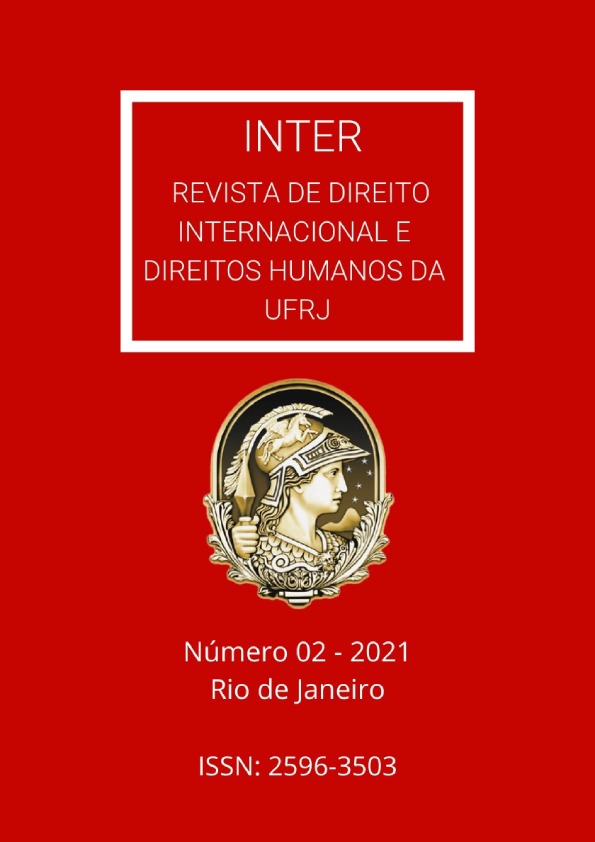CITIES OF GODDESS: ROLES AND EXPERIENCES OF WOMANHOOD IN THE MILITARIZED FAVELAS OF RIO DE JANEIRO
Palabras clave:
feminist studies, governmentality, militarization, securitization, Brazilian favelas.Resumen
The story of the 2002 film “City of God”, which was based on a book with the same name, is totally centralized in male characters and ignores almost completely the strong presence of women in the favelas, whose characters are relegated to lovers of the male characters or their mothers, with little or no focus on the experience of womanhood in such places. However, the often-neglected role and experiences of women in the context of urban violence play a pivotal role in the understandings of the dynamics of its state of affairs. Women are gang members or supporters, partners, mothers, messengers, carers for the wounded, and women endure the challenges of motherhood in violent spaces and struggle for justice for the victims assassinated by the police forces. Moreover, with the militarization under covered in “pacification programs”, gender relations are reinforced. This paper aims at a gendered approach of the situation and consequences of the militarized favelas of Rio de Janeiro, in which women’s roles and experiences help to shape the understanding of the state of affairs of such areas.
Descargas
Citas
Adriana Vianna, Juliana Farias. A Guerra das mães: dor e política em situações de violência institucional. cadernos pag. 37 (2011): 79-116.
Amanda Sá Dias. Palestinian Refugee Camps and Brazilian Favelas as Urban Heterotopias. Birkbeck L. Rev. 5 (2017): 81.
Anjuli Fahlberg, and Thomas J. Vicino. Breaking the city: Militarization and segregation in Rio de Janeiro. Habitat International 54 (2016): 10-17.
Anne-Marie Veillette. Nilza Rogéria de Andrade Nunes. As mulheres e os efeitos da pacificação das favelas no Rio de Janeiro: compreendendo o gênero na política de segurança.
Boaventura de Sousa Santos. The law of the oppressed: the construction and reproduction of legality in Pasargada. Law & Soc'y Rev. 12 (1977): 5. At 109.
Bruno Huberman. Pacification, Capital Accumulation, and Resistance in Settler Colonial Cities: The Cases of Jerusalem and Rio de Janeiro. Latin American Perspectives. (2019): 131-148.
Carolyn Prouse. Framing the World cUPP: Competing discourses of favela pacification as a mega-event legacy in Brazil. Recreation and Society in Africa, Asia and Latin America 3, no. 2 (2013).
Chandni Desai, and Heather Sykes. An ‘Olympics without Apartheid’: Brazilian-Palestinian solidarity against Israeli securitisation. Race & Class 60, no. 4 (2019): 27-45.
Janice E Perlman. The myth of marginality revisited: The case of favelas in Rio de Janeiro. Becoming global and the new poverty of cities (2005). At 9.
Jeff Garmany. The embodied state: governmentality in a Brazilian favela. Social & Cultural Geography 10, no. 7 (2009): 721-739. At 723.
Kiberle Crenshaw. Mapping the Margins: Intersectionality, identity politics, and violence against women of color. Stan. L. Rev. 43 (1990): 1241. At 1250.
Laird Bergad. The comparative histories of slavery in Brazil, Cuba, and the United States. Cambridge University Press, 2007.
Marielle Franco. UPP: a redução da favela a três letras: uma análise da política de segurança pública do estado do Rio de Janeiro. 2014.
Nilza Rogéria de Andrade Nunes. Mulher de favela: a feminização do poder através do testemunho de quinze lideranças comunitárias do Rio de Janeiro. PhD diss., PUC-Rio, 2015. At 175.
Stephen Holder. FILM REVIEW; Boys Soldiering in an Army of Crime. Jan. 2003. The New York Times.
Polly Wilding. “New Violence”: Silencing women’s experiences in the favelas of Brazil. Journal of Latin American Studies 42, no. 4 (2010): 719-747. At 722
The Times of Israel. Far-right Rio governor likens drug dealers to Hezbollah, vows to act like Israel. 17 July, 2019. Available at https://www.timesofisrael.com/far-right-rio-governor-likens-drug-dealers-to-hezbollah-vows-to-act-like-israel/

